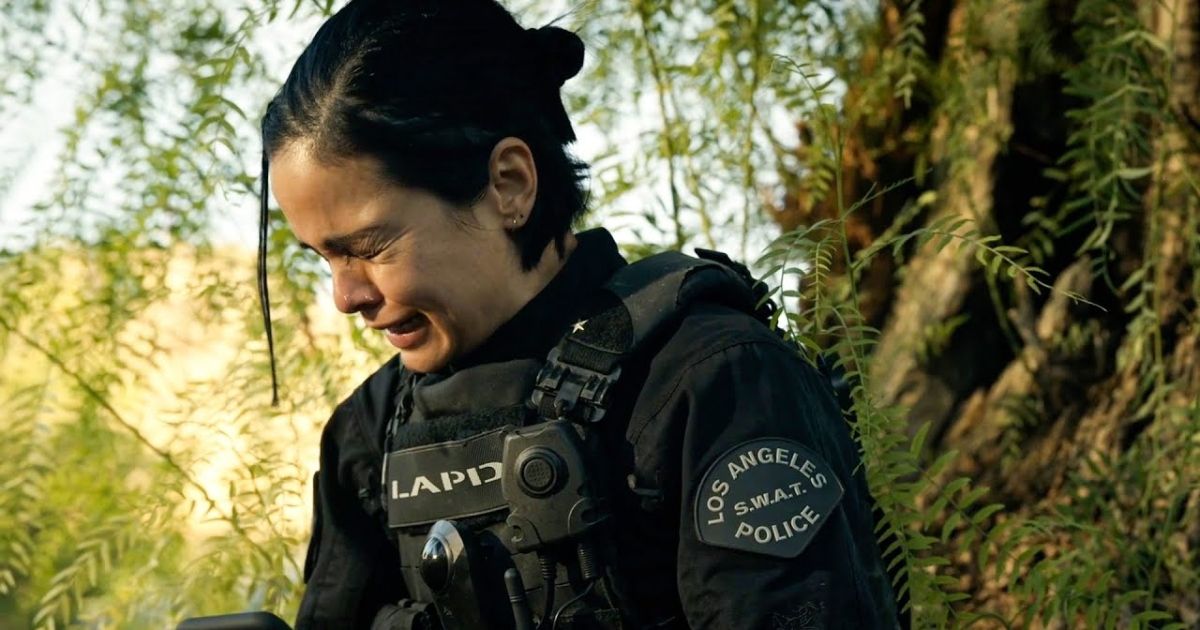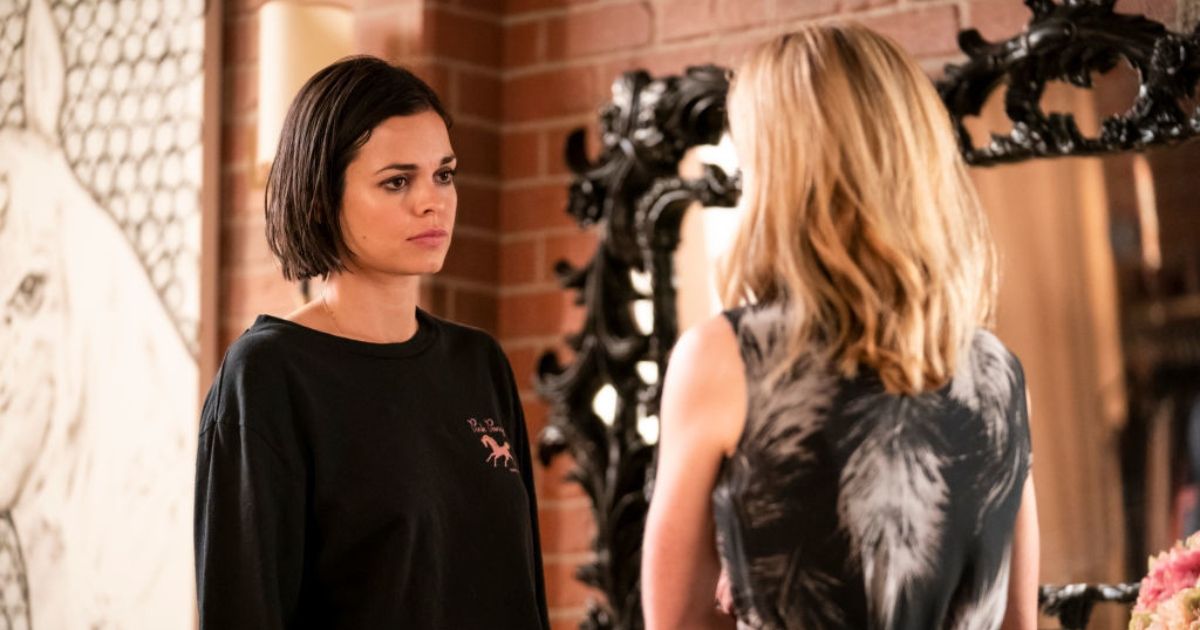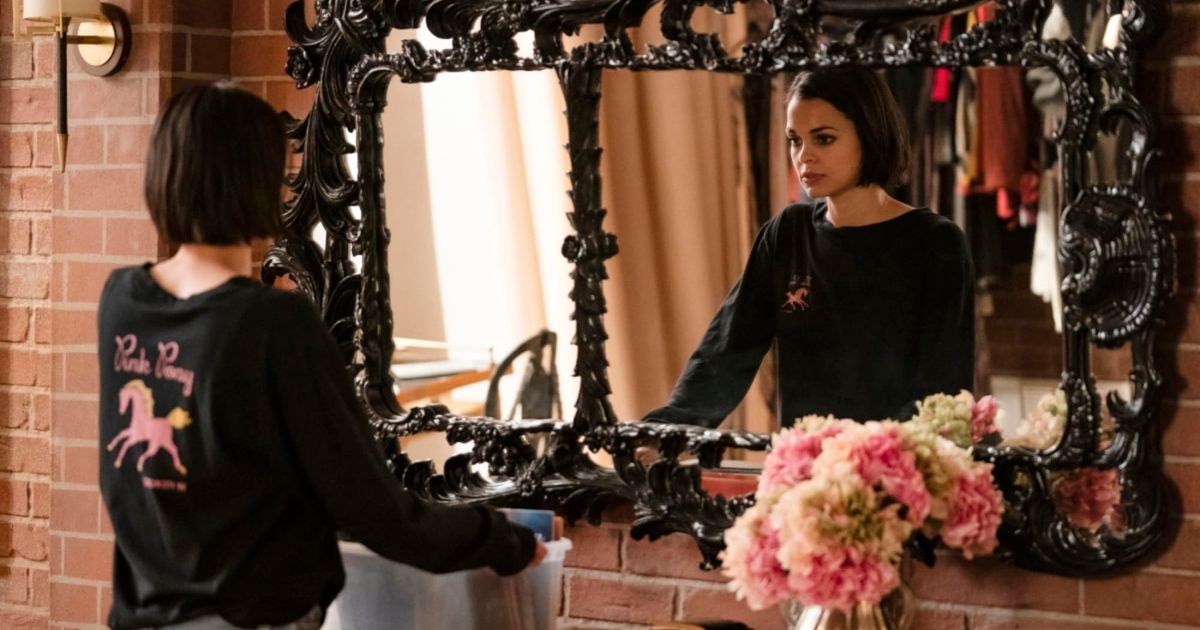#How the CBS Police Drama Explores Polyamory with Respect and Grace

Table of Contents
“How the CBS Police Drama Explores Polyamory with Respect and Grace”
In addition to having superior tactical skills and a delightfully sardonic personality, Chris is also openly bisexual. This fact was revealed early-on in S.W.A.T. when fellow teammate Jim Street (Alex Russell) tries to hit on a woman who has already accepted a date with Chris. Her sexuality is fully accepted within her professional environment, which is nice to see, but probably not entirely realistic. Viewers also get a brief glimpse into the opinions of Chris’ large Latino family, who struggled with her coming out pre-canon, but have since embraced her. As with many LGBTQ+ TV characters, Chris’ bisexuality is brought to the forefront of S.W.A.T. in seasons 2 and 3 as she and the show itself explore a subject matter that is still somewhat taboo for primetime television police procedurals: a polyamorous relationship. And it wasn’t a joke. Or a disaster.
Introducing: The Throuple
In early season 2, it’s revealed that Chris has begun dating a woman named Kira, who admits that she is engaged to a man and that they practice polyamory. The couple is looking for a third person to join their relationship as an equal partner — colloquially known as a “throuple.” Chris declines at first, having not made any indication that she was interested in such a dynamic and being a bit perturbed about Kira’s lack of transparency in the beginning of their communication. But soon, Chris realizes how deep her feelings for Kira are and decides that she’s interested in meeting her fiancé Ty and exploring the possibility of a relationship. However, she is understandably concerned about how the people around her will react to this new development in her life. Chris looks to Street for some guidance before making the leap, and he thoughtfully suggests, “Who knows? They could be the loves of your life. You should just do what you want to do. Don’t worry about what anyone else thinks.”
Ultimately, Chris decides to enter into the relationship. Since she doesn’t fully understand the dynamics of polyamory yet, we as viewers are able to learn about it alongside her. S.W.A.T. does an excellent job bringing us inside this new experience, rather than presenting viewers with something they might not understand and expecting them to just get on board with it. This experience is entirely new to Chris, so she leans on Ty and Kira to help her navigate it.
Ty and Kira explain some of their “we rules,” which focus primarily on open communication. They tell her, “This only works if we all feel secure and valued.” One of Chris’ major concerns is that the relationship won’t remain equal between the three of them because Ty and Kira are getting married. Chris confides in her only married teammate, Deacon (Jay Harrington), and finds out that he shares her concerns. He warns her, “That couple is in a relationship that predates you. They’re getting married, and you’re not part of that marriage, no matter how they try to sell it to you. I think you’re setting yourself up for heartache.” Despite her fear, Chris moves forward with the relationship and eventually accepts Ty and Kira’s offer to move in with them.
In reality, some people who practice polyamory have a “primary” partner in addition to other relationships. However, within the narrative of S.W.A.T., this particular relationship was always described as fully equal between all three members, and admittedly, the fact that two of them are entering into a marriage makes that claim seem slightly disingenuous.
The Harsh Reality
Although some of Chris’ teammates seem concerned about this new development in her life, it is always treated as a worry that she will be heart-broken due to the complicated nature of the relationship, rather than a disdain for polyamory itself. In fact, the only significant pushback within the narrative comes from Annie (Bre Blair), Deacon’s wife. The couple’s daughter Lila asks Chris about Ty and Kira, and she tries to explain to the little girl that it’s okay to love more than one person. This conversation upsets Annie, and she tells Chris that she doesn’t believe polyamory is moral, nor does she want her kids to grow up thinking that it is. Annie even goes as far as to say that she wouldn’t have named Chris the godmother of her new baby if she had known she was in that type of relationship.
Although this confrontation was heartbreaking for Chris, and for viewers who care about the story, it was important for S.W.A.T. to portray an opposing viewpoint. Public contempt, especially from loved ones, is a realistic complication that people who practice polyamory have to deal with in the real world. It would be poor representation to portray an alternative lifestyle without also showing the sometimes harsh reality of that experience — especially for a show that often tackles difficult topics like racism and police brutality.
Trouble in Paradise
Eventually, it is actually Ty that begins to feel jealous as Chris and Kira spend much more time with each other than with him. Rather than speaking to both women about his concerns, he corners Chris and suggests that she is upsetting the balance in the relationship. This conversation pushes Chris into serious contemplation, and she begins to realize that she is significantly more romantically interested in Kira than Ty. Unfortunately, this can be a common struggle within the poly community and can be disaster for the relationship when there is a lack of transparency between all parties. In fact, this was the exact reason why Ty and Kira’s previous “throuple” ended.
Chris further breaks the “we rules” by reaching out to Kira and expressing her desire for a monogamous relationship just between the two women. Kira admits to feeling the same way and the two agree to move forward together and to cancel the wedding. Unfortunately, before they are able to speak to Ty, Kira backs out of the agreement. She tells Chris that she has “put in too many years” with Ty and that she hopes Chris can find a way to make the three of them work.
The issue here is not only that the throuple is no longer what Chris desires and therefore wouldn’t be authentic, but also, Kira’s request suggests that Ty be left in the dark. There would be no way to successfully move forward in any relationship, let alone one with three members, when there are major feelings and developments that aren’t being openly discussed. By following this narrative, S.W.A.T. was clearly focused on creating drama for the characters and not the potential implications that it could have. Ultimately, some viewers criticized the show for not presenting the most ethical version of a polyamorous relationship, instead relying on old tropes about non-monogomy.
However, the situation did present an opportunity for growth for Chris: she knows that she isn’t willing to compromise her integrity and to do so would be unfair to all three of them. She decides to leave both Ty and Kira altogether and moves out in secret. By not breaking up with them in person, Chris is reconfirming the three’s inability to openly communicate, which seems a fitting end.
Although the relationship between Chris, Kira, and Ty did eventually end, S.W.A.T. never treated it as a silly plot device or something taboo that was just presented to be criticized. Instead, the show explored the real dynamics of polyamory, the complexity of the emotions involved, and the external pushback that can arise, all with the same attention and grace they would have given any other relationship on the show. Was it a perfect representation of polyamory? Probably not. But neither are most storylines presented on television. However, for a primetime network show that mainly identifies as a police procedural, S.W.A.T. tackled a topic most shows of this type would shy away from — and since representation does matter, as many LGBTQ+ series ahead of their time have proven, they at least get kudos for that.
Read Next
About The Author
If you liked the article, do not forget to share it with your friends. Follow us on Google News too, click on the star and choose us from your favorites.
For forums sites go to Forum.BuradaBiliyorum.Com
If you want to read more Like this articles, you can visit our Social Media category.









